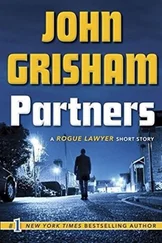John Grisham - A time to kill
Здесь есть возможность читать онлайн «John Grisham - A time to kill» весь текст электронной книги совершенно бесплатно (целиком полную версию без сокращений). В некоторых случаях можно слушать аудио, скачать через торрент в формате fb2 и присутствует краткое содержание. Жанр: Детектив, на английском языке. Описание произведения, (предисловие) а так же отзывы посетителей доступны на портале библиотеки ЛибКат.
- Название:A time to kill
- Автор:
- Жанр:
- Год:неизвестен
- ISBN:нет данных
- Рейтинг книги:3 / 5. Голосов: 2
-
Избранное:Добавить в избранное
- Отзывы:
-
Ваша оценка:
- 60
- 1
- 2
- 3
- 4
- 5
A time to kill: краткое содержание, описание и аннотация
Предлагаем к чтению аннотацию, описание, краткое содержание или предисловие (зависит от того, что написал сам автор книги «A time to kill»). Если вы не нашли необходимую информацию о книге — напишите в комментариях, мы постараемся отыскать её.
A time to kill — читать онлайн бесплатно полную книгу (весь текст) целиком
Ниже представлен текст книги, разбитый по страницам. Система сохранения места последней прочитанной страницы, позволяет с удобством читать онлайн бесплатно книгу «A time to kill», без необходимости каждый раз заново искать на чём Вы остановились. Поставьте закладку, и сможете в любой момент перейти на страницу, на которой закончили чтение.
Интервал:
Закладка:
The Honorable Omar Noose had not always been so honorable. Before he became the circuit judge for the Twenty-second Judicial District, he was a lawyer with meager talent and few clients, but he was a politician of formidable skills. Five terms in the Mississippi Legislature had corrupted him and taught him the art of political swindling and manipulation. Senator Noose prospered handsomely as chairman of the Senate Finance Committee, and few people in Van Buren County questioned how he and his family lived so affluently on his legislative salary of seven thousand dollars a year.
Like most members of the Mississippi Legislature, he ran for reelection one time too many, and in the summer of 1971 he was humiliated by an unknown opponent. A year later, Judge Loopus, his predecessor on the bench, died, and Noose persuaded his friends in the Legislature to persuade the governor to appoint him to serve the unexpired term. That's how ex-State Senator Noose became Circuit Judge Noose. He was elected in 1975, and reelected in 1979 and 1983.
Repentant, reformed, and very humbled by his rapid descent from power, Judge Noose applied himself to the study of the law, and after a shaky start, grew to the job. It paid sixty thousand a year, so he could afford to be honest. Now, at sixty-three, he was a wise old judge, well respected by most lawyers and by the state Supreme Court, which seldom reversed his rulings. He was quiet but charming, patient but strict, and he had a huge monument of a nose that was very long and very pointed and served as a throne for his black-rimmed, octagon-shaped reading glasses, which he wore constantly but never used. His nose, plus his tall, gawky frame, plus his wild, untamed, dense gray hair, plus his squeaky voice, had given rise to his secret nickname, whispered among lawyers, of Ichabod. Ichabod Noose. The Honorable Ichabod Noose.
He assumed the bench, and the crowded courtroom stood as Ozzie mumbled incoherently a statutorily required
paragraph to officially open the May term of the Ford County Circuit Court. A long, flowery prayer was offered by a local minister, and the congregation sat down. Prospective jurors filled one side of the courtroom. Criminals and other litigants, their families and friends, the press, and the curious filled the other side. Noose required every lawyer in the county to attend the opening of the term, and the members of the bar sat in the jury box, all decked out in full regalia, all looking important. Buckley and his assistant, D. R. Mus-grove, sat at the prosecution's table, splendidly representing the State. Jake sat by himself in a wooden chair in front of the railing. The clerks and court reporters stood behind the large red docket books on the workbench, and with everyone else.watched intently as Ichabod situated himself in his chair upon the bench, straightened his robe, adjusted his hideous reading glasses, and peered over them at the assemblage.
"Good morning," he squeaked loudly. He pulled the microphone closer and cleared his throat. "It's always nice to be in Ford County for the May term of court. I see most members of the bar found time to appear for the opening of court, and as usual, I will request Madam Clerk to note those absent attorneys so that I may personally contact them. I see a large number of potential jurors present, and I thank each of you for being here. I realize you had no choice, but your presence is vital to our judicial process. We will empanel a grand jury momentarily, and then we will select several trial juries to serve this week and next. I trust each member of the bar has a copy of the docket, and you will note it looks somewhat crowded. My calendar reveals at least two cases set for trial each day this week and next, but it's my understanding most of the criminal cases set for trial will go off on negotiated plea bargains. Nonetheless, we have many cases to move, and I request the diligent cooperation of the bar. Once the new grand jury is empaneled and goes to work, and once the indictments start coming down, I will schedule arraignments and first appearances. Let's quickly call the docket, criminal first, then civil; then the attorneys may be excused as we select a grand jury.
"State versus Warren Moke. Armed robbery, set for trial this afternoon."
Buckley rose slowly, purposefully. "The State of Missis-
sippi is ready for trial, Your Honor," he announced gloriously for the spectators.
"So's the defense," said Tyndale, the court-appointed lawyer.
"How long do you anticipate for trial?" asked the judge.
"Day and a half," answered Buckley. Tyndale nodded in agreement.
"Good. We'll select the trial jury this morning and start the trial at one P.M. today. State versus William Daal, forgery, six counts, set for tomorrow."
"Your Honor," answered D.R. Musgrove, "there will be a plea in that case."
"Good. State versus Roger Hornton, grand larceny, two counts, set for tomorrow."
Noose continued through the docket. Each case drew the same response. Buckley would stand and proclaim the State ready for trial, or Musgrove would quietly inform the court that a plea had been negotiated. The defense attorneys would stand and nod. Jake had no cases in the May term, and although he tried his best to look bored, he enjoyed the call of the docket because he could learn who had the cases and what the competition was doing. It was also a chance to look good before some of the local folks. Half the members of the Sullivan firm were present, and they too looked bored as they sat arrogantly together in the front row of the jury box. The older partners of the Sullivan firm would not dare make an appearance at docket call, and they would lie and tell Noose they were in trial in Federal Court over in Oxford or perhaps before the Supreme Court in Jackson. Dignity prevented their mingling with the ordinary members of the bar, so the firm's younger lieutenants were sent to satisfy Noose and request that all the firm's civil cases be continued, postponed, delayed, stalled, or acted upon in such a way that the firm could drag them on forever and continue to bill by the hour. Their clients were insurance companies who generally preferred not to go to trial and would pay by the hour for legal maneuvering designed solely to keep the cases away from the juries. It would be cheaper and fairer to pay a reasonable settlement and avoid both litigation and the parasitic defense firms like Sullivan & O'Hare, but the insurance companies and their adjusters were too stupid and
cheap, so street lawyers like Jake Brigance earned their livelihoods suing insurance companies and forcing them to pay more than what they would have paid had they dealt fairly from the beginning. Jake hated insurance companies, and he hated insurance defense attorneys, and he especially hated the Sullivan firm's younger members, all of whom were his age, and all of whom would gladly cut his throat, their associates' throats, their partners' throats, anyone's throat to make partner and earn two hundred thousand a year and skip docket calls.
Jake particularly hated Lotterhouse, or L. Winston Lot-terhouse, as the letterhead proclaimed him, a little four-eyed wimp with a Harvard degree and a bad case of haughty self-importance who was next in line to make partner and thus had been especially indiscriminate with his throat cutting during the past year. He sat smugly between two other Sullivan associates and held seven files, each of which was being charged a hundred dollars per hour while he answered the docket call.
Noose began the civil docket. "Collins versus Royal Consolidated General Mutual Insurance Company."
Lotterhouse stood slowly. Seconds meant minutes. Minutes meant hours. Hours meant fees, retainers, bonuses, partnerships.
"Your Honor, sir, that case is set prime for a week from Wednesday."
"I realize that," Noose said.
Читать дальшеИнтервал:
Закладка:
Похожие книги на «A time to kill»
Представляем Вашему вниманию похожие книги на «A time to kill» списком для выбора. Мы отобрали схожую по названию и смыслу литературу в надежде предоставить читателям больше вариантов отыскать новые, интересные, ещё непрочитанные произведения.
Обсуждение, отзывы о книге «A time to kill» и просто собственные мнения читателей. Оставьте ваши комментарии, напишите, что Вы думаете о произведении, его смысле или главных героях. Укажите что конкретно понравилось, а что нет, и почему Вы так считаете.










